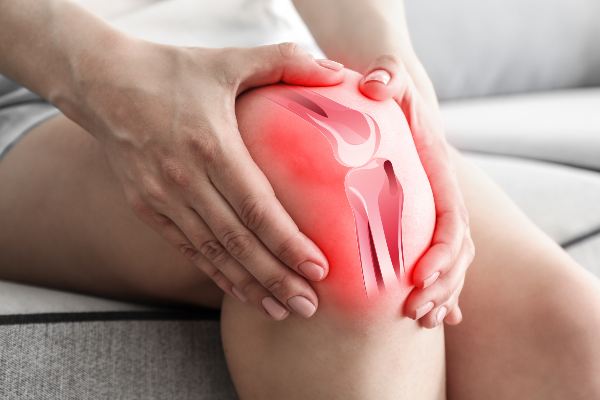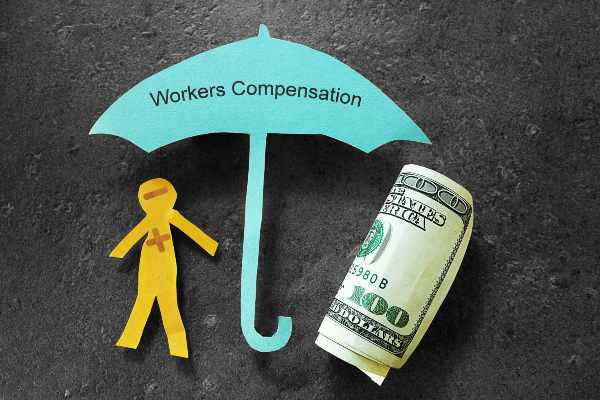Workers’ compensation insurance is meant to protect you in case you suffer a workplace injury or illness, including occupational diseases. However, your employer or employer’s insurer may turn down worker's compensation claims for a variety of reasons. When this happens, you will need the help of a Fort Lauderdale workers’ compensation lawyer. Here at the VG Law Group, we help you seek the benefits you deserve for your workplace injury. Call us today to discuss your claim with our lawyers.
When filing valid claims for workers’ compensation in Florida, it is important to understand what injuries are covered, the damages that are available to you, and the parties you can hold liable. Here is a look at these aspects of a workers’ comp claim.

A wide range of injuries is covered under Florida workers’ compensation insurance. In addition, if you suffer an illness that is directly a result of work activities or workplace conditions in Florida, you can also seek benefits for it. Here is a look at some of the most common workplace injuries covered by workers’ compensation.
Sprains and Strains: Heavy-duty lifting, sudden movements, or moving around heavy objects can result in back strain or muscle strains. When these problems require medical assistance, you can recover benefits to cover these costs. In the case of more severe sprains and strains, you may also need to take time away from work resulting in lost wages. These are also covered under workers’ compensation.
Bone Fractures: Slip-and-fall incidents during work can result in broken bones. You may also suffer bone fractures when an object falls on you or if you fall from some height. Bone fractures can take anywhere between few weeks and few months to heal, depending on the severity of the damage.
Head Injuries: Head injuries are typically serious and may even result in brain trauma and injuries. If the damage is limited to the skull, healing and recovery may be quicker. In the case of brain injuries, full recovery can take a long time, possibly even years.
Chemical Exposure: In industrial work settings, chemical hazards are commonplace. Unsafe exposure to dangerous chemicals can result in burns, severe injuries, and even fatalities.
Carpal Tunnel Syndrome: Repetitive stress to the wrist can result in carpal tunnel syndrome, which is marked by pain, tingling in the hand, and numbness. An example of such work is keyboard strokes. Long-term job activities involving typing can result in this medical problem.
Cuts and Lacerations: Work activities can also cause cuts and lacerations to different body parts. These can be painful injuries, although they don’t take very long to heal in most cases. You can seek compensatory benefits for this type of injury.
In addition, a wide range of other injuries such as amputations, crushed limbs, spinal cord injuries, and permanent disabling conditions are all covered under workers’ compensation insurance. If a workplace injury or illness causes the death of a worker in Florida, this is also covered, and the survivors or dependents are eligible for benefits. If you are unsure whether your workplace injury is covered, it is best to consult a Fort Lauderdale workers' compensation lawyer..
If you are injured at work or while performing your work-related tasks anywhere in Florida, you can seek the following worker's compensation benefits:
- Medical Costs: The full extent of medical costs associated with your work injury is covered in your workers' compensation claim. These include the costs of transportation to and from a hospital, hospital fees, in-hospital medical care, physician’s fees, costs of prescription medicine, expenses related to any required medical treatment, tests, or procedures, as well as the costs of rehabilitation and physical therapy. The overall medical care costs include both past medical expenses as well as the expected future medical bills until you reach a certain level of recovery.
- Lost Wages: As an injured worker, you may be forced to take time away from work resulting in lost income. You can seek lost wage benefits when that is the case. These are also known as Temporary Total Disability (TTD) benefits. TTD benefits are typically 2/3 of your average weekly wage. The maximum cap for these income replacement benefits is $1,011 per week in 2021, as per the Florida Department of Financial Services.
- Lost Earning Capacity: If your work-related injury limits you so that you can no longer work and earn at the pre-injury levels, you may also qualify for lost earning capacity benefits. A complicated formula is used to calculate these, and you can consult a Fort Lauderdale workers' compensation lawyer to see if you qualify for these benefits.
- Pain and Suffering: These are intangible damages that are typically available in the case of severe work injuries suffered by a Florida worker. You can recover compensation for the physical pain and mental suffering such as depression and anxiety which you experience because of your injury.

- Death Benefits: If a worker dies due to a wrongful death injury or illness, the surviving spouse and any other people who qualify as dependents of the victims are eligible for funeral expenses up to $7,500. In addition, educational benefits of up to $150,000 may also be paid.
The actual workers' comp benefits may vary from case to case. Additional compensation may be available if a third-party's negligence caused the injury or the injury resulted from gross negligence on the part of an employer.
For instance, you can file a wrongful death claim or lawsuit if a third party caused the death of your loved one in a work-related accident. It is best to consult a workers’ compensation lawyer to know about potentially liable parties and see what benefits are available for you as an injured worker.
It is important to understand the workers' compensation process when you are seeking benefits for your workplace injury. When you suffer a workplace accident and injury, you are legally required to report it to your employer within 30 days of the injury or your knowledge of it.
You should then seek immediate medical attention and undergo any treatment that the doctor recommends. You should also ask your physician to provide a detailed assessment of the injury.
Your employer will typically file a First Report of Injury or Illness with the insurer detailing the personal injury of a worker. If the employer and the insurer do not dispute your claim, you start receiving worker's compensation benefits within 21 days as the injured worker.
However, if your employer or employer’s insurer does not accept your claim, you will have to fight for your rights. If this is the case, you should schedule a consultation with a worker's compensation attorney and get legal advice.
As per the ‘Good Faith Law’ of Florida, you are required to try and resolve the dispute amicably. If that fails, you have the right to appeal the denial.
Once your claim for Florida workers’ compensation benefits has been denied, you can appeal against it by filing a Petition for Benefits. This petition is filed with the Office of the Judges of Compensation Claims, also known as OJCC.
The OJCC judge assigned to your case will first ask you and the insurer or employer to come together in a mediation conference. At this conference, a neutral third-party mediator tries to bring both sides to some kind of agreement. The mediator is usually an attorney experienced in the area. The purpose of mediation is to make one last effort to resolve the matter out-of-court.
When mediation fails, and you can’t reach an agreement with the other side, a formal hearing of your case is scheduled. An OJCC judge presides over this hearing. Both sides must present their evidence and make their arguments at this hearing. You can also introduce the testimony of other people, such as your doctor or a colleague who witnessed your workplace injury.
The judge makes a decision within 30 days of this hearing. If the decision is in your favor, you start receiving workers’ compensation benefits briefly. If the decision is against you, you then have the option of appealing against the decision at the First District Court of Appeals.
However, the appellate court will not accept any new evidence or arguments. Instead, the court will only review the evidence and written record from the OJCC hearing and see if a fair decision was reached.
Even after the First District Court of Appeals, you have several other levels of appeal where you can take your case after denial.
When you are filing a compensation claim for a work-related injury, it is important to have legal representation. The sooner you hire a Fort Lauderdale workers’ compensation lawyer, the better are your odds of receiving compensation benefits at the earliest.
This is because a workers compensation attorney can negotiate with your Broward County employer or insurer on your behalf to secure medical benefits, wage benefits, disability benefits, or any other benefits that you qualify for.

Here at the law office of VG Law Group, we have lawyers who focus on workers’ compensation law. With our outstanding service, we help you recover the workers’ comp benefits that you deserve. Especially after your Broward County claim has been denied, our law firm can work with you to file a Petition for Benefits and force the compensation insurance company to offer fair compensation. Get in touch today to discuss your workers' compensation claim with our experienced lawyers within our firm.